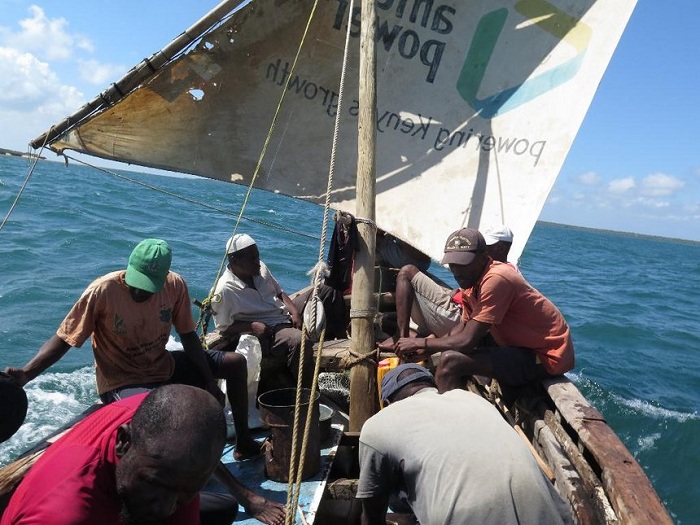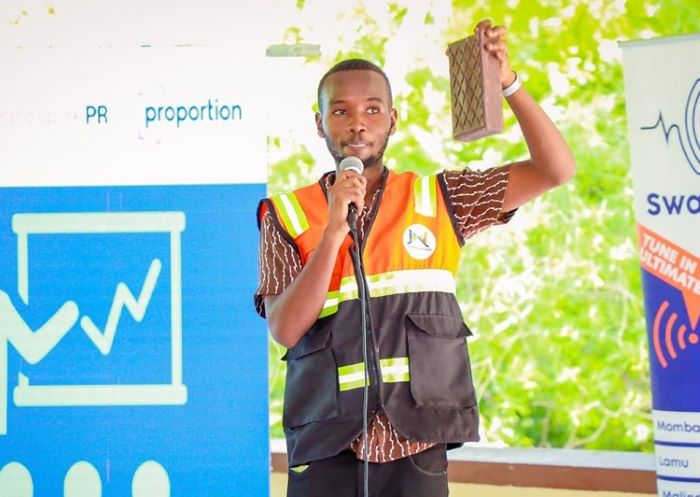Mombasa County marked the ‘International Day of Zero Waste’ with a Zero Waste Fest held at the Swahilipot Hub, the special focus being plastic waste management.
The fest organized and hosted by the Swahilipot Hub Foundation saw stakeholders in the waste management sector come together to tackle the challenge of plastic waste polluting the county and the ocean.
“The theme at this festival has to do with plastic waste, we want to see where we are in plastic waste collection and management, what the county government and other stakeholders are doing to ensure there’s zero plastic waste in our environments, and getting into our ocean,” said Godffrey Nato a lecturer from the Technical University of Mombasa.
On 14th December 2022, the United Nations General Assembly adopted a resolution at its seventy-seventh session to proclaim 30 March as International Day of Zero Waste, to be observed annually.
“This is the second time it is being held across the globe. It was first celebrated last year, I believe that is the reason why so many people don’t even know about this day and one of the reasons why we are organizing the zero-waste fest is to generate more awareness about the International Day of Zero Waste, highlight some of the success stories and individuals and organizations making great effort in terms of tackling the challenge of waste,” said Arafat Mukasa from Swahilipot Hub Foundation.
The other aspect of the celebration is generating interest among the youth as well as the wider community when it comes to matters relating to plastic waste management, and also to compel organizations to either take action towards tackling plastic pollution or if they are already doing so, have initiatives to rump up their efforts.
“We recently held a beach clean-up and observed there was a specific packaging of plastic that was most common along our beaches, which is chewing gum packaging. What we want to do is reach out to companies manufacturing and distributing chewing gum to show them how their packaging is affecting the environment,” said Arafat.
The event included panel discussions and roundtable discussions around how many people are working in the waste management value chain, specifically in Mombasa, all the way from waste generation and handling at source, collection and transportation, waste recycling, disposal sites like Mwakirunge, and final goods production which is manufacturing.
There was also a ‘Zero Plastics Fashion Show’ and ‘Zero Plastics Poetry Slam’ where youths were challenged to come up with items made out of plastic waste and poems under the theme ‘Beat Plastic Pollution’. Winners were awarded.
The event also gave young innovators from the Mombasa Plastics Prize a chance to showcase some of their innovations to tackle plastic waste.
“We make fashionable, versatile eco baskets from plastic weaving yarns. Our target market is ladies from 18-65 yrs, we did our research and wanted to give ladies something they can use for various occasions from going to shop to going to things like ruracio,” said Francis Aute from Plastic Taka Creatives.
Aute says the current challenge they are facing is access to machinery to make the plastic weaving yarns used in making their products.
Rafiki Peps, on the other hand, are a plastics waste management company based in Bamburi. They train households on waste segregation.
“We are training households because there’s a disconnect between conventional waste management and the impact of waste. So, we go to households, train them on waste segregation, and give them the necessary materials to segregate the waste and then also collect the waste,” said Carol Ojijo from Rafiki Peps.
She says changing people’s mindsets about waste management has been a challenge adding that waste segregation was a big problem in many households.
“We had a one-week campaign where we reached 100 households in Bamburi, the response was quite positive and some are willing to adopt segregation,” said Carol.
Other innovators from MPP who showcased their innovations are Kapapo Solutions who sell products made from plastic waste, from fencing poles, and paving blocks to furniture.
“Instead of using concrete or wood that can be eaten by termites, we’re using plastic waste to make the poles. This way, we are protecting the environment from plastics and also giving you a durable product,” said Teddy Ndei from Kapapo Solutions.
He says they get competition from conventional products like concrete and wood because plastic waste products are not widely known.
“At the moment we are trying to teach people, sensitize them about the products we have that are helping to keep our environment clean. So those who care about the environment will purchase our products,” said Ndei.
All these innovators have several challenges in common, from regulation and licensing to product development, commercialization, funding, and access to machinery.
Godffrey Nato says the government should work with young innovators to tackle the challenge of unemployment in the country.
“The youth are very innovative and have the potential to come up with great ideas to fight plastic waste. We can support them by ensuring that their ideas are scientifically backed. The government can also come up with grants or affordable loans for the youth with innovative ideas because the youth don’t have the capital to bring their ideas to fruition,” said Nato.
The county can also invest in plastic waste management infrastructure to ensure that plastic does not end up in the ocean.
Youth groups are also playing a key role in plastic waste management in the county by collecting and separating plastic from the waste, washing the plastic, and taking it for recycling.
“The challenge of plastic waste mismanagement is a complex one, a lot of work has to be done. If we cannot avoid the use of plastic waste then let us cultivate positive behaviors regarding plastic waste by ensuring we dump throw plastic in the correct bins,” said Arafat.
“Also avoid using plastics, let us go for brands that are eco-friendly,” he added.
















